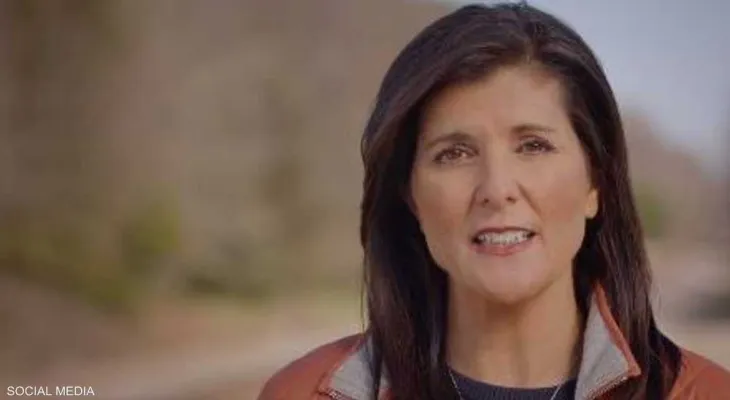Search here
Newspaper
Search here

Arab Canada News
News

Published: March 6, 2024
Nikki Haley will suspend her presidential campaign today, Wednesday, after a strong defeat across the country on Super Tuesday, according to people familiar with her decision, leaving Donald Trump as the last remaining major candidate for the 2024 Republican nomination.
Three people with direct knowledge, who spoke on condition of anonymity because they were not authorized to speak publicly, confirmed Haley's decision before her scheduled announcement Wednesday morning.
Haley does not intend to endorse Trump in her announcement, according to people aware of her plans. Instead, she is expected to encourage him to win the support of a coalition of moderate Republicans and independent voters who backed her.
Haley, the former South Carolina governor and UN ambassador, was the first major Trump challenger when she jumped into the race in February 2023. She spent the final phase of her campaign sharply warning the Republican Party against embracing Trump, whom she said was preoccupied with chaos and personal grievance over President Joe Biden’s defeat in the general election.
Her departure allows Trump to focus solely on a possible rematch in November with Biden. The former president is on track to reach the necessary delegate count of 1,215 to win the Republican nomination later this month.
Haley’s defeat represents a painful, if expected, blow to voters, donors, and Republican officials who opposed Trump and his fiery "Make America Great Again" politics. She was especially popular among moderates and college-educated voters, electoral blocs likely to play a pivotal role in the general election.
It is unclear whether Trump, who recently announced that Haley’s donors would be permanently banned from his movement, can eventually unify the deeply divided party.
On Tuesday night, Trump declared that the Republican Party was united behind him, but in a statement issued shortly afterward, Haley’s spokeswoman, Olivia Perez-Cubas, said, "Unity is not achieved simply by claiming we are united."
Perez-Cubas said, “Today, state after state, there remains a large block of core Republican voters who express deep concerns about Donald Trump.” “This is not the unity our party needs to succeed. Addressing these voters’ concerns would make the Republican Party and America better.
Haley made clear she does not want to serve as Trump’s vice president or run on a third-party ticket arranged by the No Labels group. She is leaving the race with a high national profile that could help her run for president in the future.
By staying in the race, Haley attracted enough support from suburban residents and college-educated voters to highlight Trump’s clear weaknesses with those groups.
In AP VoteCast polls conducted among Republican voters in the Iowa, New Hampshire, and South Carolina primary and caucus contests, between 61% and 76% of Haley supporters said they would be very dissatisfied if Trump became the Republican nominee to the extent that they would not vote for him in the November general election. Voters in the early face-to-face Republican contests who said they would not vote for Trump in the fall represent a small but important slice of the electorate: 2 in 10 voters in Iowa, one-third of New Hampshire voters, and one-quarter of South Carolina voters.
Haley is leaving the 2024 presidential race after making history as the first woman to win a Republican primary. She defeated Trump in Washington, D.C., on Sunday and in Vermont on Tuesday.
She had insisted she would stay in the race until Super Tuesday, traveling across the country to campaign in states holding Republican contests. Ultimately, she was unable to stop Trump’s path toward a third consecutive nomination.
Haley’s allies say she has exceeded most political world expectations by reaching this stage.
She had initially ruled out running against Trump in 2024. But she changed her mind and ended up launching her bid three months after he did, citing, among other things, the country’s economic problems and the need for a "changing of the guard." Haley (52) later called for competency tests for politicians older than 75, a sharp jab at both Trump, 77, and Biden, 81.
Her campaign was slow to gain donors and support, but she ultimately outperformed all her other Republican rivals, including Florida Governor Ron DeSantis, former Vice President Mike Pence, and Senator Tim Scott, her South Carolina colleague whom she appointed to the Senate in 2013. Money poured in until the end. Her campaign said it raised more than $12 million in February alone.
She gained popularity among many Republican donors, independent voters, and the so-called "Never Trump" crowd, although she criticized the criminal cases brought against him as politically motivated and promised that if she became president, she would pardon him if convicted in federal court.
Comments